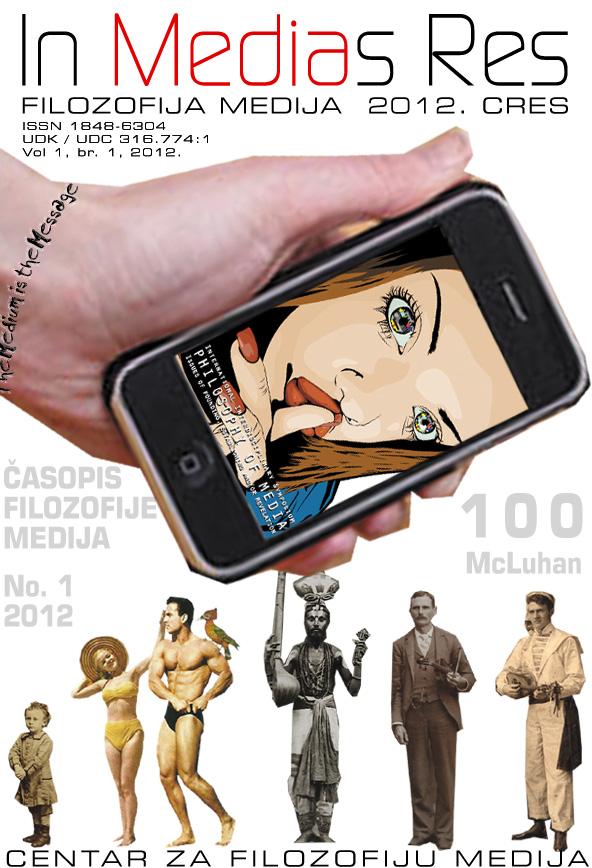Neophodne slike: Masmediji i carstvo prolaznog
Necessary Images: Mass Media and the Kingdom of Perishable
Author(s): Davor DžaltoSubject(s): Philosophy, Media studies, Photography, Communication studies, Theory of Communication
Published by: Centar za filozofiju medija i mediološka istraživanja
Keywords: image; stimuli; autonomy of sensuous experience; manipulation; facebook;
Summary/Abstract: My primary thesis in this essay is that contemporary multimedia image represents the culmination of the modernist idea of “image” and its aesthetics. The “image” in this context is composed of three features essential to the formation of the early modern aesthetics: 1) mimetic character of the image, 2) particular sensuous experience, which has the power to seduce the viewer and 3) autonomy of the aesthetic experience.The appearance of the dynamic, interactive and multimedia “image” (e.g. television or internet) brings these early modernist ideas to its climax, turning them into a powerful instrument of manipulation. Mass-media become the generators of the “reality,” whose persuasiveness still relies on their supposed mimetic character. On the other hand, based precisely on this possibility to generate new realities, the media realize one of the very basic ideas of the modern art – the idea of autonomy of the aesthetic experience. The central means in this quest is again the seductive power of the sensuous representation. This way, the mass-media transfer the logic of the mass-consumption into the sphere of information and multimedia stimuli, which results in the viewer’s addiction to the “new” sensations. The thirst for the “new,” which means for the consummation of “new” sensations, leads us to the time of aposteriority, and to the “kingdom of perishable” in which nothing lasts more than a post on facebook or twitter.This way, the contemporary media manifest themselves as the culmination of the aesthetical idea of the sensuous representation as a seductive phenomenon and an “autonomous” experience, which can create and change the reality, not only represent it. Looking at the way which the so called social networks (especially facebook) function, one can conclude that this culmination of the manipulative sensuous experience lead not only to the addiction to multimedia stimuli, but also to the pasivization of individuals and, paradoxically, lack of their social life. This, in return, gives much broader opportunities to social and political elites to reinforce and spread their power.
Journal: In Medias Res
- Issue Year: 1/2012
- Issue No: 1
- Page Range: 21-27
- Page Count: 7
- Language: Croatian

